HEC Paris and Société Générale Renew Key Chair
HEC and Société Générale have renewed a partnership for the Energy & Finance Chair stretching back to 2005. The October 15 on-campus ceremony was followed by an evening conference focusing on the “key to driving today’s energy transition”.
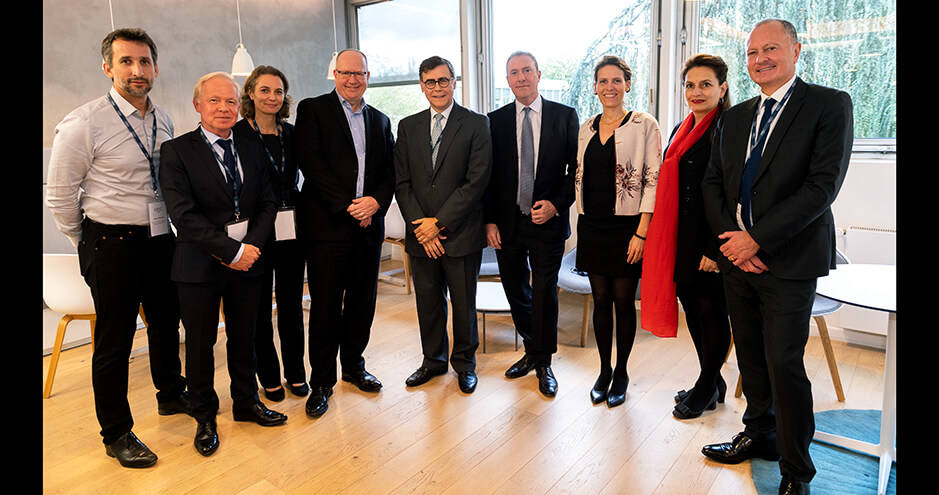
In the 14 years since its inception, the Energy & Finance Chair has provided some of HEC’s richest academic contents. These include training programs on energy economics and finance and a six-week intensive module devoted to energy markets and economics, delivered by SG executives and employees. From the get-go at Tuesday’s convention signing ceremony, SG Head of Global Banking & Advisory Pierre Palmieri stressed his bank’s ongoing support for the modules that Chair Executive Director Jean-Michel Gauthier has forged in his 14 years at the helm. After the hour-long conference, Palmieri shared his enthusiasm for what he has seen grow in the past decade: “This partnership with HEC Paris stands out for us. Jean-Michel’s role has been fundamental in creating the enthusiasm around energy and finance, a field which is at the heart of our bank’s strategy.”
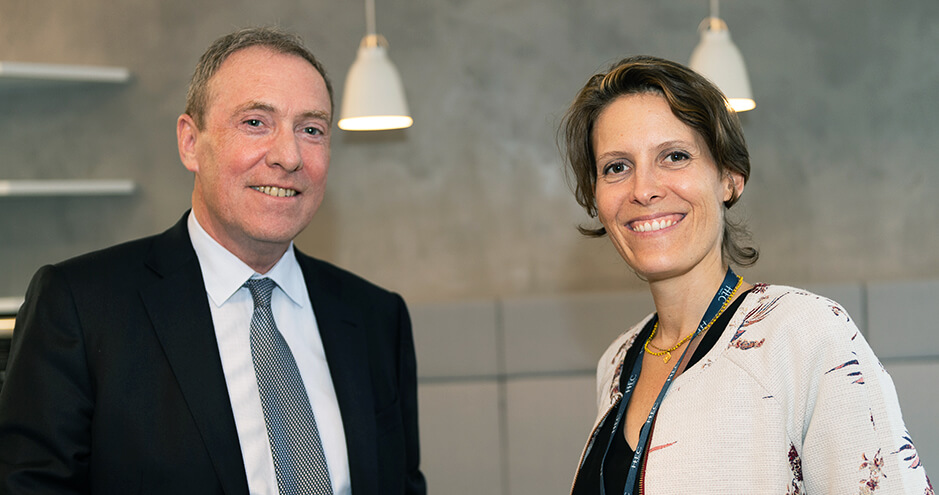
Around 500 students follow courses designed to study the impact of key financial factors in the energy industry (ranging from digitization to decarbonization) on the strategies of the industry’s major players. HEC delivers over 360 class hours in a field which is constantly evolving. “When these modules began 14 years ago, it was a very different world,” Jean-Michel Gauthier told the 100 people assembled at the T206 amphitheater, many of whom were his students. “Looking back at my notes, it feels as remote as the pre-industrial 19th century! At the time, we were discussing reserve-based finance, US oil imports, how to finance fossil fuel industries and whether the electric car had a chance of seeing the light of day in our lifetime. How the world has changed!”
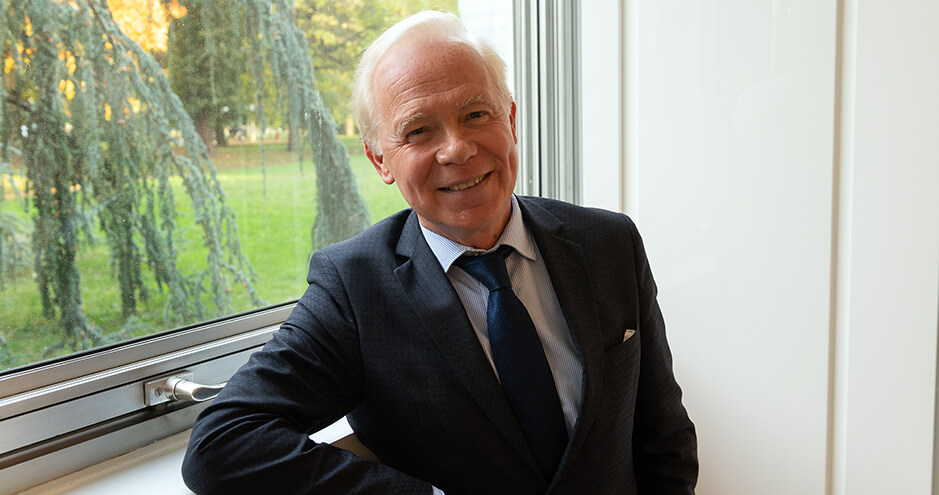
Eleven HEC courses are on offer to students of all backgrounds and experiences, including the flagship Energy & Finance Certificate module. Indeed, each spring, third-year students enjoy a six-week induction that is driven by SG bank professionals who cover financing energy infrastructures and coach related case studies. The banking specialists outline a wide array of topics including the stakes in financing the energy transition and the complex mechanics of renewables.
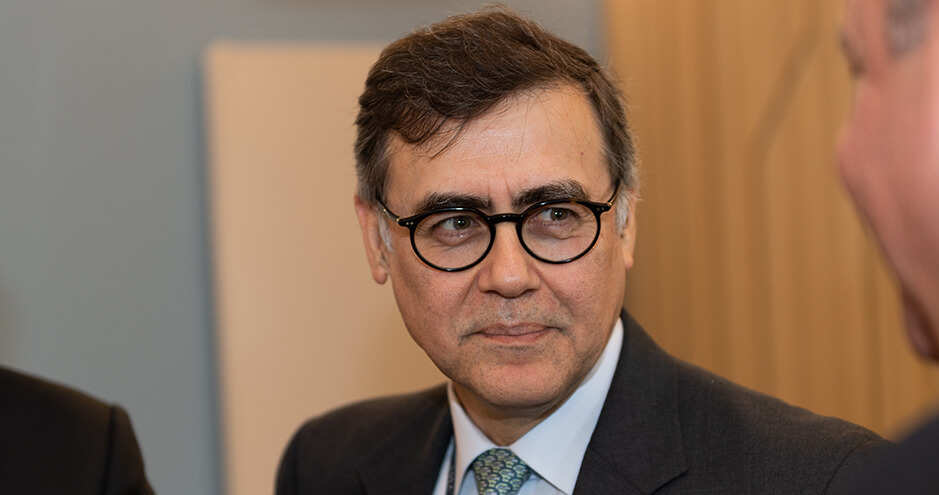
The challenges in these domains are great: “There is not a single magic bullet for this vital transition from fossil fuels to renewables,” warned Federico Turegano, SG Global Head of Natural Resources & Infrastructure. “When we talk about the UN’s 17 SDG goals, we must factor in the one billion people who have no access to electricity. Energy transition cannot occur overnight because no renewables can match all the needs in terms of energy worldwide. There must be a period of transition”
“Transition” is a word Pierre Palmieri professes to embrace. “If I were in a constructive discussion with the likes of Greta Thunberg, I would tell her that these transitions take time, are complex. We need to accompany our clients in the oil and gas industry progressively in their evolution towards a greener energy. I understand her emotions but we must not only talk about climate change but also about providing access to electricity for the 15% of the world’s population who have none. If we don’t, then we have to accept a mindset of negative growth and I’m not so sure people really want that.”
The bank’s Global Head of Power, Allan Baker, further described the challenges ahead and admitted Société Générale has often been caught out by the speed of change. “But we have learnt to be agile and see that energy transition is disruptive. If we don’t respond to the urgent needs and evolve with agility we will become dinosaurs. And we know what happened to them.”
Baker also urged the students to look towards Africa for what he called “a promising vision of the future”. Overall, Société Générale has invested heavily in the continent’s retail network. It has dedicated teams both on the continent and in Europe working on investment and financing businesses like Jokkolabs and Lab Innovation in Senegal, and Simplon in the Côte d’Ivoire. “In terms of reaching the UN’s SDG goals, Africa is a key part of the equation and HEC Paris’ students should be aware of this,” said Pierre Palmieri. “We are well-positioned for retail in 19 countries and have been working for decades on financing Africa’s exports, development projects and trade. Therefore, we are leveraging our networks and expertise and dovetailing them to the African market. We hope graduates here will have the intellectual curiosity to accompany us. The energy industry is changing and touching many more disciplines than before: geo-politics and finance in every shape and form, from investment banking to structured finance. So we expect HEC students to take into account all the dimensions of this sector.”
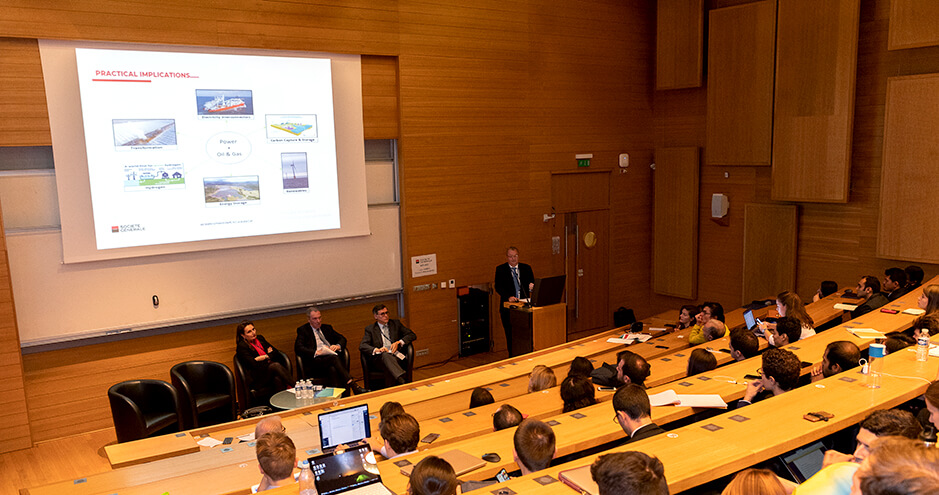
Many students at the conference were from the MSc Sustainability & Social Innovation (SASI). “Clearly Société Générale is aware that something needs to be done in terms of renewable energy and they presented interesting projects,” said Rosaria from Honduras. French SASI student Bettina agreed: “I’m happy they’ve put such emphasis on impact investment. Banks have a huge role in backing renewals but they are aware of the limitations this transition period imposes.” Hugo was more nuanced: “There are so many ways to measure ESG criteria to screen investments. I feel banks like SG are improving but, like so many of us, the complexity of monetizing it clearly remains daunting. So, the energy industry presents opportunities – and threats.”
“I was pleasantly surprised by the quality of the bank’s policies as presented to us,” added Alexandre who is soon to graduate from HEC’s MBA program. “And students are gravitating to these Energy & Finance courses because they want to be part of an industry tackling climate change and environmental challenges head on. It’s a no-brainer.”